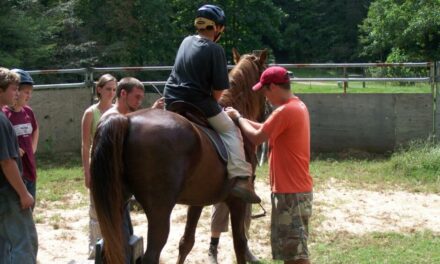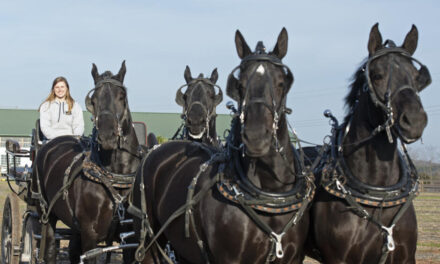by Jane Seigler, MHC Government Relations Committee Co-Chair (first published in the February 2024 Equiery)
The 446th session of the Maryland General Assembly kicked off at noon on January 10. If you are troubled by the math (2024 – 446 = 1578), that’s because the count includes “regular” and “special” sessions. “Regular” sessions are the scheduled, 90 day, January to April, sessions every year. “Special” sessions are (usually summer-time) sessions that are convened to deal with critical issues that were unresolved during the regular session, were created by a gubernatorial veto of a particular piece of legislation that was passed by the legislature, or that cropped up after the session concluded.
If it’s like most, this session will showcase tension, drama, great exultation, bitter disappointment, and boredom, in more or less equal measures, with the occasional bit of comic relief.
This session will be a bit unlike most recent sessions, though, because the spigot of federal pandemic money has run dry, and the state is facing serious budget challenges, exacerbated not just by the disappearance of federal pandemic funds, but also by such factors as the need to fund the ambitious and expensive “Blueprint” for improvement of the statewide education system that was adopted a few years back, and by the decline in gas tax, toll, and other revenues that fund road and transportation projects, precipitating a proposed $3.3 billion transportation budget cut. Bottom line? Any proposed legislation requiring significant funding will face stiff headwinds.
As of this writing, there are a number of bills of interest to Maryland horse people. Among them is the bill to require minors to wear helmets when riding on a highway, a public trail, or “the grounds of a facility that solicits or offers to the public recreational, educational or competitive equestrian activities.” Exemptions include riders engaged in an agricultural practice, or members of the Amish or Mennonite communities. The bill was pre-filed by Del. Mary Lehman (PG) in the House and Sen. Ariana Kelly (Mont) in the Senate. Amendments will be introduced by the sponsors to provide for circumstances in equine therapy when a traditional riding helmet is not feasible. (Thanks to MHC Equine-Assisted Services Committee for invaluable assistance in drafting the amendments!) The hearing in the Senate is January 31, in the House February 1. Versions of this bill have been introduced for the past few years, and despite what is seemingly a “no-brainer,” it has failed to pass. Hopefully this time will be the charm.
The Department of Agriculture has introduced a bill that, among other things, codifies the process for renewing stable licenses, and authorizes the Maryland Horse Industry Board to establish and assess late fees for those who fail to renew their licenses on time. Senate hearing January 23, House Hearing February 7.
A couple of recent significant events may have an impact on the session. The American Horse Council released its Economic Impact Study, the first since 2018, on January 22. The Maryland-specific breakout data show a dramatic increase in the economic impact of the Maryland horse industry, especially in the recreation and competition sectors. Plans are in the works for an event in Annapolis to showcase the results of the study.
In addition, the Maryland Thoroughbred Racetrack Operating Authority, created by the legislature last year, submitted its findings and recommendations for the future of Thoroughbred racing in Maryland. The report recommends that the ownership of Pimlico be transferred to the state, which would completely rebuild the facilities over the next three years. During the rebuild, the Preakness would be run temporarily at Laurel, returning to Pimlico in 2027. Pimlico and Laurel are currently owned by the Stronach Group, which does business as 1/ST and operates in Maryland as the Maryland Jockey Club. Stronach would retain ownership of the Preakness and the Black-eyed Susan Stakes, which would be licensed to a nonprofit operating authority, created by the Maryland Stadium Authority, that would handle the day to day operation of TB racing in the state. Stronach would also retain ownership of Laurel, but no racing would be conducted there and it is anticipated that the land would ultimately be developed after racing returns to the rebuilt Pimlico.
The proposal for the new Pimlico contemplates 140 to 160 racing days, and includes a new clubhouse, stabling for 700 horses, a 1,000-seat event space, a 2,000-car parking garage, veterinary facilities, a possible hotel and other new amenities. The proposal also contemplates the construction of a new training facility at another location. The report recommended consideration of three sites: the existing Bowie Race Course Training Center, which Stronach owns; Mitchell Farm in Harford County, and Shamrock Farm in Woodbine.
The proposal is subject to approval by the legislature. It would make use of funds already approved by the legislature in 2020 for renovation of both Pimlico and Laurel – work which was never begun for a variety of reasons, including the effects of the pandemic on costs, supply chain issues, etc.
As the session proceeds, things will be moving very fast. Horse Council members will get up-to-the-minute updates and action alerts. If you are not a member – join now! https://mdhorsecouncil.org/join/












